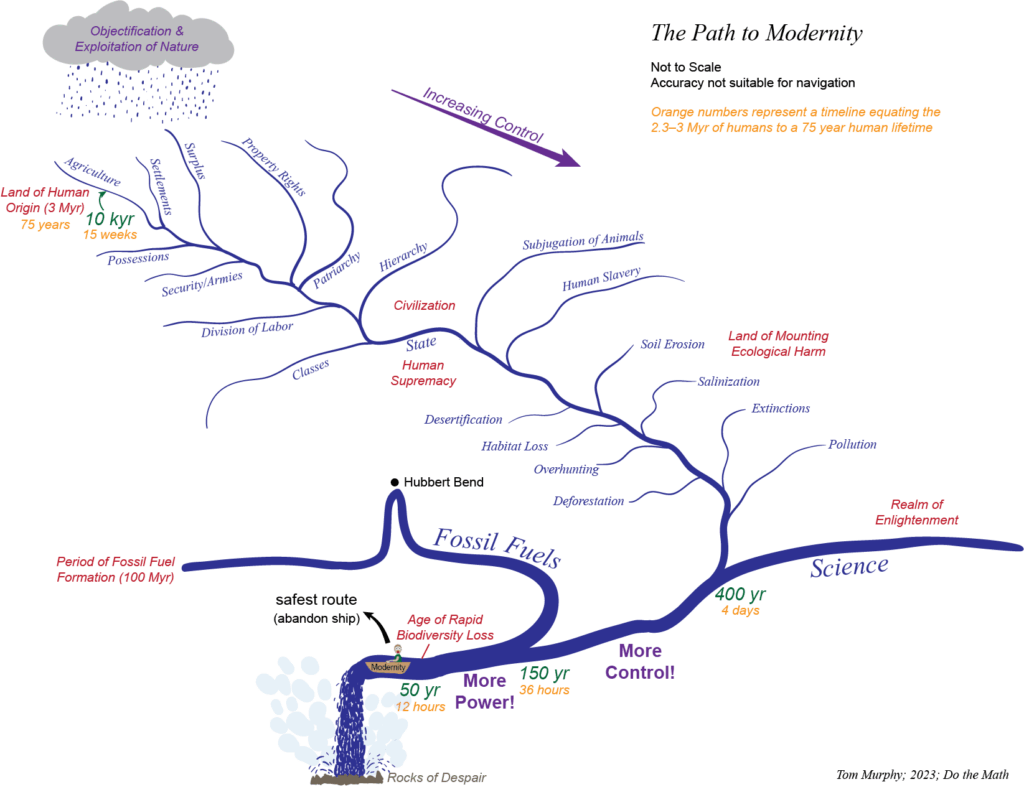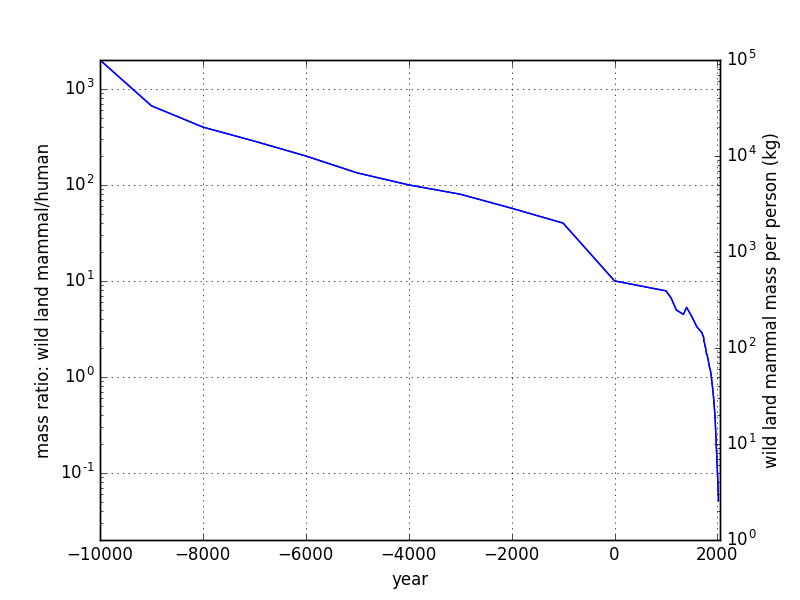 For many years now, I have made efforts to live differently—initially motivated by a sense of resource limits and the recognition that scaling back could have a dramatic effect if adopted widely. I was able to cut my domestic energy demand by a factor of four or five. I changed my habits of diet, travel, heating/cooling, laundry, showering, consumer activity, and much else.
For many years now, I have made efforts to live differently—initially motivated by a sense of resource limits and the recognition that scaling back could have a dramatic effect if adopted widely. I was able to cut my domestic energy demand by a factor of four or five. I changed my habits of diet, travel, heating/cooling, laundry, showering, consumer activity, and much else.
Yet I remain firmly in the grip of modern ways. I am still a member of “normal” society, and don’t (yet) draw stares when I go out in public. I live in a house, drive a car (sparingly), buy food at a grocery store, and eat lunch at the university food court. Yes, I could shed more of these. I could try a living in a yurt, getting by without owning a car, and finding ways to get my food locally without scanning bar codes. But even though I have gone much farther than most, going “all the way” has always felt a little overboard to me. It edged up to seeming performative; to virtue-signaling; to those choices becoming the focus instead of a means. I often think of it in terms of trying to convince a group of hikers to make better progress: you don’t do it by disappearing over the horizon and losing influence. You’re better off staying close enough to encourage others along.
When reading the book Hospicing Modernity, by Vanessa Machado de Oliveira, I came across this great analogy:
There is a popular saying in Brazil that illustrates this insight using water… The saying goes that in a flood situation, it is only when the water reaches people’s hips that it becomes possible for them to swim. Before that, with the water at our ankles or knees, it is only possible to walk or to wade. In other words, we might only be able to learn to swim—that is, to exist differently—once we have no other choice.
I instantly had a new friend in this metaphor. In fact, it filled a gaping hole that had been present for many years. Sure, I could flop down and try to swim right now, but I would look a fool floundering in the muddy water. Yet, I can help prepare myself and others for the day when we must swim.
As much as I love this framing, one thing bothers me about it, and I have a proposed alternative, but it has the downside of requiring a longer telling.
Views: 4421






